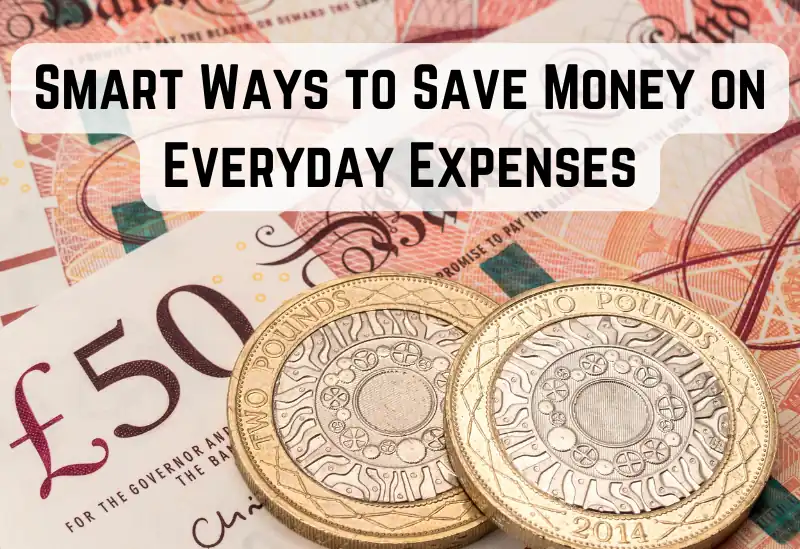Managing your money doesn’t have to be complicated or stressful. With a few new simple habits, you can take control of your finances without spending a lot of money on fancy tools or advisors.
Many people think personal finance requires complex spreadsheets or expensive software, but that’s simply not true. Taking small steps today towards better money habits can lead to a real financial improvement over time.
We’ve found that starting with basic budgeting, reducing unnecessary expenses, and setting aside even small amounts for savings can make a real difference. These fundamental practices form the foundation of solid money management.
We’ll share some tips that anyone can use regardless of income level. From tracking your spending with free apps to finding clever ways to cut costs on everyday items, these approaches are accessible to everyone.
The goal isn’t perfection but progress, improving your financial situation one decision at a time.
What Is Budget-Friendly Personal Finance?
Budget-friendly personal finance is about handling money wisely without needing to earn a massive income. It’s the art of making smart choices that help us meet our financial goals while living within our means.
At its core, budget-friendly finance focuses on creating a plan for our money that balances everyday needs with future aspirations. We don’t need to be financial experts to manage our money well – just willing to learn some basics.
The approach centres on tracking where our pounds go and making intentional decisions about spending. This mindset helps us save money consistently, even when working with a tight budget.
Key parts of budget-friendly personal finance include:
- Creating and following a realistic budget
- Building an emergency fund for unexpected costs
- Setting clear savings goals (short and long-term)
- Reducing unnecessary expenses
- Finding ways to increase income when possible
Simple habits like checking account balances regularly and avoiding impulse purchases can make a big difference to our financial stability.
Budget-friendly finance is also about balance. We aim to meet our needs today while working towards tomorrow’s goals. This might mean setting aside small amounts for holiday savings while paying down debt.
By adopting these principles, we can gain control over our finances no matter our income level. The goal isn’t perfection but progress towards greater financial wellbeing.
How To Create A Practical Budget
Creating a budget doesn’t have to be complicated. We’ve found that with the right approach, anyone can build a spending plan that works for their lifestyle and financial goals.
The 50/30/20 Budgeting Method
The 50/30/20 budget offers a simple framework that’s perfect for beginners. Here’s how it works:
- 50% of your monthly income goes to necessities (rent, food, utilities)
- 30% to wants (dining out, entertainment, hobbies)
- 20% to savings and debt repayment
To get started with this method, calculate your after-tax monthly income. Then multiply by 0.5, 0.3, and 0.2 to determine your spending limits for each category.
We recommend tracking your expenses for a month to see how your current spending aligns with these percentages. This gives you a clear picture of where adjustments might be needed.
Many budget templates and budget planners include this method as an option. It’s flexible enough to adapt to most income levels while providing helpful boundaries.
Zero-Based Budgeting For Full Control
Zero-based budgeting means giving every pound a job until your income minus expenses equals zero. This method requires more attention to detail but offers complete control over your money.
Start by listing all your income sources for the month. Then create categories for all your expenses, including fixed expenses (mortgage, car payment) and variable expenses (groceries, petrol).
Next, assign specific amounts to each category until you’ve allocated every pound. Your budget template might look something like this:
| Category | Planned | Actual | Difference |
|---|---|---|---|
| Rent | £800 | £800 | £0 |
| Groceries | £300 | £285 | +£15 |
| Transport | £150 | £175 | -£25 |
We find this approach particularly helpful for those trying to reduce debt or save for specific goals. Budget spreadsheets or apps like Excel make maintaining a zero-based budget much easier.
Remember to review your budget regularly and make adjustments as needed. This isn’t about restriction, it’s about being intentional with your money.
Managing Personal And Business Finance Together
Balancing personal and business finances can be tricky but rewarding when done correctly. We’ve found that keeping these aspects separate yet coordinated helps prevent financial confusion and maximises tax benefits.
Opening A Separate Business Bank Account
Opening a dedicated business bank account is essential for maintaining clean financial records. We recommend doing this even for small side hustles or freelance work. This separation makes tracking business expenses much simpler during tax season.
Many banks offer free business accounts for new entrepreneurs with minimal paperwork requirements. Look for accounts with:
- Low or no monthly fees
- Free digital banking
- Reasonable transaction limits
- Mobile app access
A business account helps protect your personal assets if your company faces debts or legal issues. It also makes it easier to monitor business cash flow without getting it mixed up with your personal direct debits and standing orders.
When choosing a bank, consider one that integrates with accounting software to streamline your bookkeeping and save precious time.
Budgeting For Business Growth Without Overspending
Creating a realistic business budget prevents overspending while allowing for growth. We recommend allocating funds to different categories based on your business needs and goals.
Start by tracking all expenses for several months to identify patterns. Break these down into:
Fixed costs:
- Insurance premiums
- Rent
- Subscriptions
- Loan repayments
Variable costs:
- Inventory
- Marketing
- Travel expenses
Set aside 10-15% of income for business savings or an emergency fund. This provides a buffer for slow periods or unexpected expenses without forcing you to tap into personal savings accounts.
Review your business budget monthly and adjust as needed. Pay special attention to recurring subscriptions that might no longer serve your business goals. Prioritise paying off business debt to reduce interest payments and improve cash flow over time.
Finding The Best Personal Finance Software In The UK
Managing your finances effectively requires the right tools. The UK market offers numerous personal finance software options that can help you track spending, plan budgets and achieve financial goals without breaking the bank.
Features To Look For In Personal Finance Apps
When selecting a budgeting app, focus on apps that offer automatic transaction importing from your bank accounts. This saves time and reduces the chance of missing expenses.
Look for clear spending categorisation that shows where your money goes each month. The best apps allow you to customise these categories to match your specific needs.
Security is non-negotiable. Choose apps with strong encryption and two-factor authentication to keep your financial data safe from unauthorised access.
Budget creation tools should be flexible and easy to use. You’ll want the ability to set spending limits for different categories and receive alerts when you’re approaching them.
Many good apps include bill reminders to help avoid late fees and goal-tracking features that motivate you to save for specific targets like holidays or home deposits.
Popular Budgeting Apps In The UK
Money Dashboard connects to over 40 UK financial institutions and presents your finances in a user-friendly dashboard. It’s free to use and provides helpful insights into your spending patterns.
Emma focuses on helping users avoid overdrafts and find wasteful subscriptions. Its simple interface makes it popular with younger users who want straightforward budgeting help.
Yolt offers strong budgeting tools and spending analysis. It lets you set and track specific financial goals while also comparing deals on utilities and other services.
YNAB (You Need A Budget) uses a forward-looking approach where you assign every pound a job before spending it. Though it has a subscription fee, many users find the cost worthwhile for its comprehensive features.
Moneyhub includes financial coaching alongside standard budgeting tools. It works well for those wanting both tracking capabilities and guidance on improving their financial habits.
Young Person’s Guide To Car Finance
Buying your first car is exciting, but understanding how to finance it properly can save you thousands of pounds over time. We’ll show you how to navigate car finance options and make smart decisions.
Understanding Car Finance Options
When you’re young and looking for your first car, the finance options can be overwhelming. Personal Contract Purchase (PCP) is popular among young drivers as it requires lower monthly payments than other options.
You’ll pay a deposit, make monthly payments for 2-4 years, then choose to return the car, pay a final “balloon payment” to keep it, or trade it in.
Hire Purchase (HP) means you’ll own the car after making all payments. The monthly costs are higher than PCP, but there’s no large final payment and no mileage restrictions.
Bank loans offer flexibility as you own the car outright from the start. Interest rates vary widely based on your credit score, so shop around for the best deals.
Leasing works like a long-term rental with fixed monthly payments. It’s worth considering if you don’t mind never owning the car and prefer lower monthly costs.
Saving On Car Finance With Smart Decisions
Interest rates make a massive difference to what you’ll pay overall. Even a 1% lower rate could save hundreds of pounds over the loan term. Always compare at least three different lenders before deciding.
Improve your credit score before applying for finance. Pay utility bills on time and check your credit report for errors that might be dragging your score down.
Consider the total cost of ownership, not just the monthly payment. Insurance for young drivers can be eye-wateringly expensive, and don’t forget about fuel, tax, MOT and maintenance costs.
Public transit or carpooling might be cheaper alternatives for your daily commute. You could even consider a car club if you only need occasional access to a vehicle.
Putting down a larger deposit (20%+) will reduce your monthly payments and the total interest paid. We recommend saving up for 6-12 months before committing to car finance if possible.
How Savzz.co.uk Helps You Save More
Savzz.co.uk brings together the best money-saving deals and discount codes in one place, making it easy to cut costs on everyday purchases.
We’ve designed our platform to help you find genuine savings quickly without wasting time searching across multiple websites.
Where To Find The Best Discount Codes
Finding discount codes on Savzz.co.uk is easy. Our homepage displays the latest and most popular offers, sorted by category to help you find what you need quickly.
The search bar at the top of our website allows you to look for specific shops, brands or product types. Just type what you’re looking for, and we’ll show you all related discount codes.
We organise our codes by:
- Shopping categories (Fashion, Electronics, Home & Garden)
- Special events (Christmas, Black Friday, Summer Sales)
- Expiry date (Today’s deals, and when they’re expriring)
Our mobile-friendly site puts these savings in your pocket, so you can check for deals whilst shopping in-store. You can also receive notifications when new discount codes become available.
Making The Most Of Savings Opportunities
To maximise your savings with Savzz.co.uk, we recommend checking our website before making any purchase online. Even small discounts add up over time and can make a big difference to your budget.
Combine deals for bigger savings:
- Use a discount code with seasonal sales
- Look for free delivery offers alongside percentage discounts
- Stack loyalty points with promotional codes where allowed
Set a reminder to check our daily deals section each morning. Many retailers offer flash sales that last only 24 hours, and we highlight these prominently.
Our newsletter subscribers receive early access to exclusive codes not available elsewhere. Sign up takes less than a minute and could save you pounds on your next purchase.
Remember to read the terms and conditions of each offer carefully. We display key information like minimum spend and expiry dates clearly to help you avoid disappointment.
Final Thoughts On Budget-Friendly Personal Finance
Taking control of your money doesn’t have to be complicated. With a few simple habits and consistent effort, anyone can improve their financial situation regardless of income level.
We’ve found that tracking expenses is the foundation of any good financial plan. A simple spreadsheet or budgeting app can make a world of difference in understanding where your money goes each month.
The 50/30/20 rule works brilliantly for many people we know – allocating 50% to needs, 30% to wants, and 20% to savings and debt repayment. This balanced approach helps avoid the feeling of being too restricted while still making progress.
Small wins matter! Celebrating when you stick to your budget builds momentum and makes the process more enjoyable.
Remember these key points:
- Set realistic, achievable goals
- Build an emergency fund before tackling other financial goals
- Review and adjust your budget monthly
- Look for small ways to save daily
- Be patient with yourself
We’ve seen that the most successful budgeters don’t aim for perfection. They focus on progress and consistency, knowing that money management is a marathon, not a sprint.
Talking openly about money with trusted friends or family can provide support and fresh ideas. Many of us find that sharing tips and challenges makes the journey less daunting.
With practice, budgeting becomes second nature. The peace of mind that comes from having control over your finances is truly worth the effort.
Frequently Asked Questions
Here we answer common questions about budgeting and financial planning to help you manage your money without stress.
How can I effectively budget my money if I’m just starting out?
Start with tracking all expenses for a month to understand where your money goes. Use a simple notebook or your phone to record every purchase.
Next, categorise your spending into needs (rent, food, bills) and wants (entertainment, dining out). This will help you see areas where you can cut back.
Set realistic goals that match your income and lifestyle. It’s better to create a budget you can stick to than one that’s too strict and makes you feel deprived.
What are some free tools available online to help with budget planning?
Many banks now offer budgeting features within their mobile apps that automatically categorise your spending. These tools give you a clear picture of your finances without extra effort.
Google Sheets offers free budget templates that are customisable to your needs. They’re easy to use and can be accessed from any device.
The Money Advice Service website provides free budget planners and calculators designed specifically for UK residents. These tools help you plan your finances with your specific circumstances in mind.
Could you explain the 50/20/30 rule for managing personal finances?
The 50/20/30 rule divides your after-tax income into three main categories. 50% goes to necessities like housing, food, and utilities, your basic living expenses.
20% is allocated to savings and debt repayment, including emergency funds, pension contributions, and paying off credit cards or loans.
The remaining 30% can be used for wants and lifestyle choices such as dining out, entertainment, holidays, and other non-essential purchases. This rule provides a simple framework that’s flexible enough for most budgets.
What strategies can I use to budget effectively on a low income?
Focus on reducing housing costs, which are typically the largest expense. Consider house-sharing, moving to a cheaper area, or negotiating rent.
Look for ways to minimise food costs by meal planning, cooking in batches, and using supermarket own brands. A weekly meal plan can cut your food bill a lot.
Prioritise building even a small emergency fund to avoid debt when unexpected costs arise. Just £500 set aside can prevent many financial emergencies from becoming disasters.
How does the 70/20/10 budgeting principle work?
The 70/20/10 rule is a simpler alternative to the 50/30/20 approach. With this method, 70% of your income goes toward living expenses, including both needs and wants.
20% is directed to savings, investments, and building wealth for the future. This includes pension contributions and other long-term financial goals.
The final 10% is allocated to debt repayment beyond minimum payments or to charitable giving if you’re debt-free. This approach works well for those who prefer less detailed budget categories.
Are there any simple budget planners available for personal financial management?
Excel and Google Sheets offer excellent free budget templates that can be downloaded and customised to your needs. These templates often include sections for income, expenses, and savings goals.
Many UK banks now provide free budget planning tools within their mobile apps. These automatically categorise your spending and show where your money goes each month.
The Money Helper website (formerly Money Advice Service) offers a free online budget planner specifically designed for UK residents. It helps you break down your finances and suggests areas where you might save money.
















